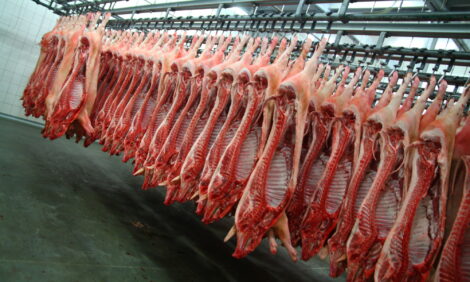



Soybean Yield and Soybean Cyst Nematode Responses to Liquid Pig Manure
Soil fertility management plays an important role in developing sustainable strategies to manage soybean cyst nematode and improve crop yield in soybean-maize cropping system, according to new research from the University of Minnesota. Manure reduced nematode numbers under certain conditions.The soybean cyst nematode (SCN), Heterodera glycines, is a major factor limiting soybean yield.
In Journal of Nematology recently, Y. Bao and colleagues at the Southern Research and Outreach Center at the University of Minnesota report their experiments conducted in 2009 and 2010 to determine the effects of liquid pig manure and chemical fertiliser PK on soybean and maize (corn) yields, and on SCN population in an SCN-suppressive field (S-Site) and an SCN-conducive field (C-Site) in Minnesota.
The experiment was a split-plot design with crop sequences as main plots and fertiliser treatments as subplots. The two-year crop sequences were Sus-Sus, Res-Sus and Corn-Sus, where Sus was SCN-susceptible soybean, and Res was SCN-resistant soybean.
The fertiliser treatments were manure, PK and a non-fertiliser as control.
Manure did not reduce SCN egg population density but resulted in 31 per cent lower SCN second-stage juvenile (J2) population density at the S-Site at 45 days after planting (DAP) in 2009.
Manure also reduced spiral nematode (Helicotylenchus spp.) population density by 52 per cent compared with PK and non-fertiliser treatments at S-Site at 45 DAP in 2009.
The crop sequence of Corn-Sus and Res-Sus reduced the SCN egg and J2 but increased spiral nematode population density at both sites.
An increase of 1.4Mg per hectare and 0.5Mg per hectare in yield of susceptible soybean was observed in manure and PK treatments, respectively, at the C-Site in 2009.
Maize yield was 2.8Mg per hectare and 5.0Mg per hectare greater when treated with manure than non-fertiliser at the S-Site and C-Site, respectively.
Bao and colleagues concluded their results suggest that soil fertility management plays an important role in developing sustainable strategies to manage SCN and improve crop yield in soybean-maize cropping system. The population density of SCN J2 was significantly lower in soil treated with manure in the SCN-suppressive soil but no reduction was observed in SCN egg population densities by manure at either site.
They added that the liquid pig manure treatment (a source of nitrogen, phosphorus, potassium and other macro- and micro-nutrient) and the chemical fertiliser PK treatment (a source of P and K) increased soybean yield in the SCN-conducive soil. Manure also increased maize yield in both sites.
The Minnesota-based researchers commented that soil fertility management, especially the application of pig manure, can partially replace the yield advantages of SCN-resistant cultivars in the SCN-conducive soil.
Reference
Bao Y., Chen S., Vetsch J. and Randall G. 2013. Soybean yield and Heterodera glycines responses to liquid swine manure in nematode suppressive soil and conducive soil. J Nematol. 2013 Mar;45(1):21-9.
Further ReadingYou can view the full report by clicking here. |
April 2013








